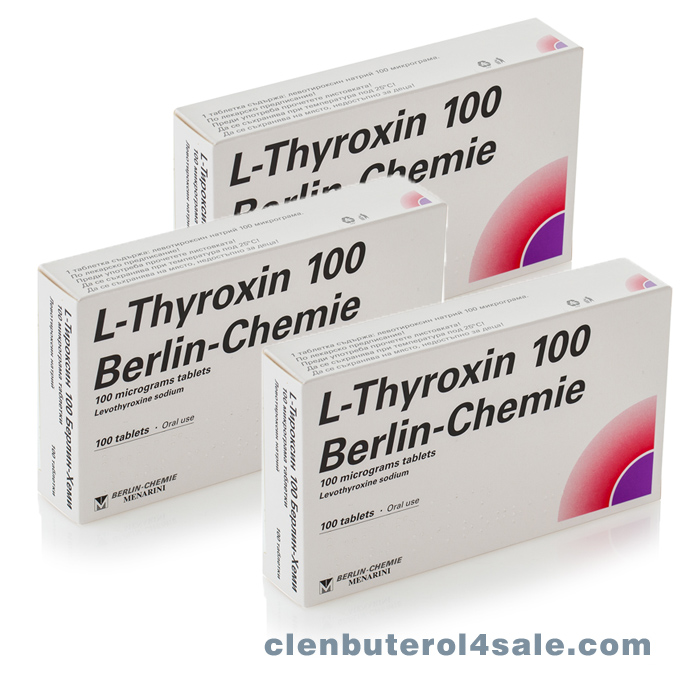The thyroid gland may be small, but it plays a monumental role in our health. For millions of people dealing with thyroid issues, L-Thyroxin has become an essential part of managing their condition.
But what exactly is this medication, and how does it work its magic? If you’re curious about the benefits of L-Thyroxin for thyroid health or want to understand more about your endocrine system, you’ve come to the right place.
Let’s dive into the fascinating world of thyroid function and explore how L-Thyroxin can significantly affect your wellbeing.
What is L-Thyroxin?
L-thyroxin, also known as levothyroxine, is a synthetic form of the thyroid hormone thyroxine (T4). It is commonly prescribed for individuals with hypothyroidism, an underactive thyroid that fails to produce enough hormones.
This medication helps restore normal hormonal levels in the body. It supports essential functions such as metabolism, energy production, and temperature regulation. L-thyroxin comes in various strengths and is typically taken once daily.
When ingested, it mimics the action of naturally occurring thyroxine. This aids in regulating numerous bodily processes that inadequate hormone levels can disrupt. The result? Improved energy levels and overall vitality for those who need it most.
Understanding the Thyroid Gland and its Function
The thyroid gland is a small, butterfly-shaped organ in the front of your neck. Despite its size, it plays a monumental role in regulating various body functions.
This gland produces hormones controlling metabolism, energy levels, and mood. Thyroid hormones influence how quickly your body converts food into energy and help regulate heart rate and temperature.
When the thyroid functions correctly, you feel energetic and balanced. However, if it under produces or overproduces hormones, this can lead to significant health issues.
Understanding this intricate balance is essential for maintaining overall wellbeing. Monitoring thyroid health allows you to address potential problems early on before they escalate into serious conditions.
How L-Thyroxin Works in the Body
L-thyroxin, a synthetic form of the thyroid hormone thyroxine (T4), regulates metabolism. When introduced into the body, it mimics the natural hormone the thyroid gland produces.
Once ingested, L-thyroxin is absorbed into the gastrointestinal tract and enters the bloodstream. It travels through your system to reach target tissues, where it converts into its active form, triiodothyronine (T3). This conversion is vital for many bodily functions.
The presence of T3 stimulates various metabolic processes, including energy production, protein synthesis, and overall cellular function. By enhancing these processes, L-thyroxin helps combat symptoms associated with hypothyroidism, like fatigue and weight gain.
Moreover, proper levels of this hormone support heart health and brain function. Thus, maintaining balanced thyroid hormones through L-Thyroxin can significantly impact overall wellbeing.
Benefits of Taking L-Thyroxin for Thyroid Health
L-thyroxin is a vital treatment for individuals with hypothyroidism. It ensures the body receives adequate thyroid hormones and helps regulate metabolism, energy levels, and overall bodily functions.
One of the most significant benefits is its ability to alleviate fatigue. Many patients report increased energy and improved focus after starting L-Thyroxin therapy.
Additionally, it supports weight management by enhancing metabolic processes. For those struggling with unexplained weight gain due to underactive thyroid function, this can be a game-changer.
Emotional wellbeing often improves, too. Patients frequently experience less anxiety and depression when hormone levels are stabilized via L-Thyroxin.
Moreover, maintaining healthy cholesterol levels becomes more achievable, reducing cardiovascular risks associated with untreated hypothyroidism.

Global L-Thyroxine Market Size Forecast 2021-2031
The global L-Thyroxine market is poised for substantial growth between 2021 and 2031, driven by increasing awareness of thyroid disorders and an aging population that necessitates consistent hormone replacement therapies.
As healthcare providers continue to emphasize the importance of managing hypothyroidism effectively, demand for L-thyroxine—an essential synthetic hormone—remains robust across various demographics. Emerging markets are witnessing a surge in diagnosis and treatment options, aided by advancements in pharmaceutical formulations that enhance bioavailability and reduce side effects.
Moreover, innovations in drug delivery systems are improving patient adherence to prescribed regimens. The competitive landscape also features a range of generic options entering the marketplace, offering cost-effective solutions for those reliant on this critical medication.
As research continues into optimized dosing guidelines and potential novel therapeutic applications beyond traditional uses, the trajectory for the L-Thyroxine market appears increasingly optimistic over the coming decade.
Conclusion: The Importance of Monitoring Thyroid Health and Consulting with a Healthcare Professional
Monitoring thyroid health is crucial for overall wellbeing. The thyroid gland regulates metabolism, energy levels, and mood. Therefore, understanding how L-Thyroxin can support this gland is essential.
Regular check-ups with a healthcare professional are crucial to managing thyroid conditions effectively. They can provide tailored advice based on individual health needs and help determine the appropriate dosage of L-Thyroxin if needed. Self-medication or neglecting symptoms may lead to complications that could have been easily managed.
It’s important to recognize signs of an underactive thyroid, such as fatigue, weight gain, or depression. If you experience these symptoms, seeking medical guidance promptly can make all the difference. Remember that optimal thyroid function contributes significantly to your quality of life and overall health. Taking charge of your thyroid health involves staying informed about treatment options like L-thyroxin and ensuring regular communication with healthcare providers. This proactive approach ultimately leads to better management of your condition and improved long-term outcomes.






